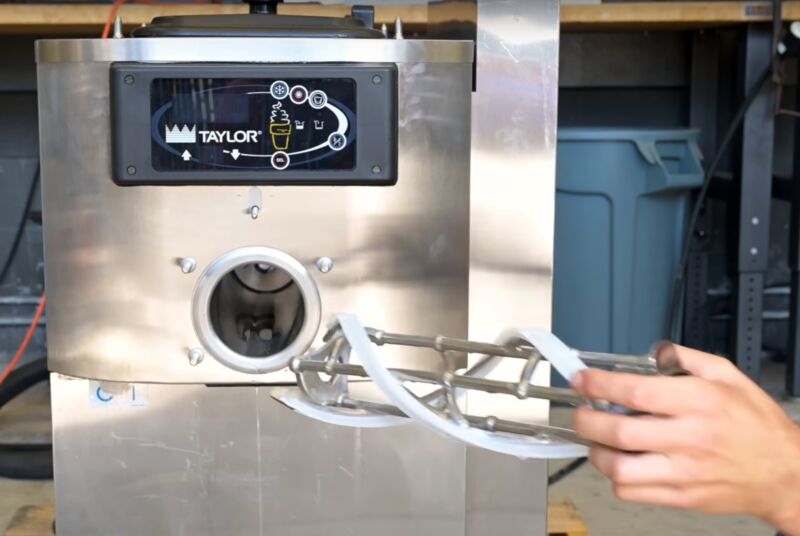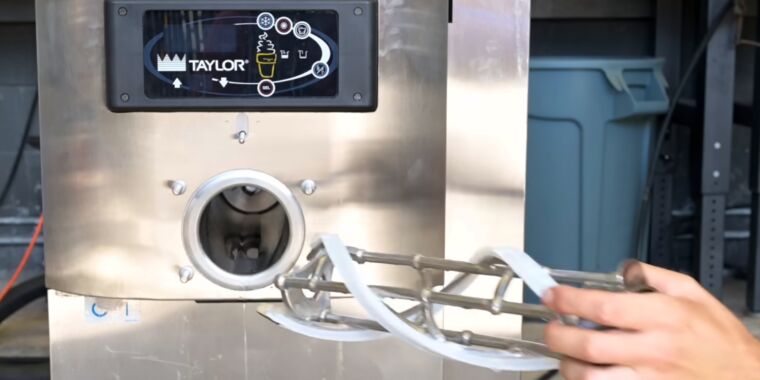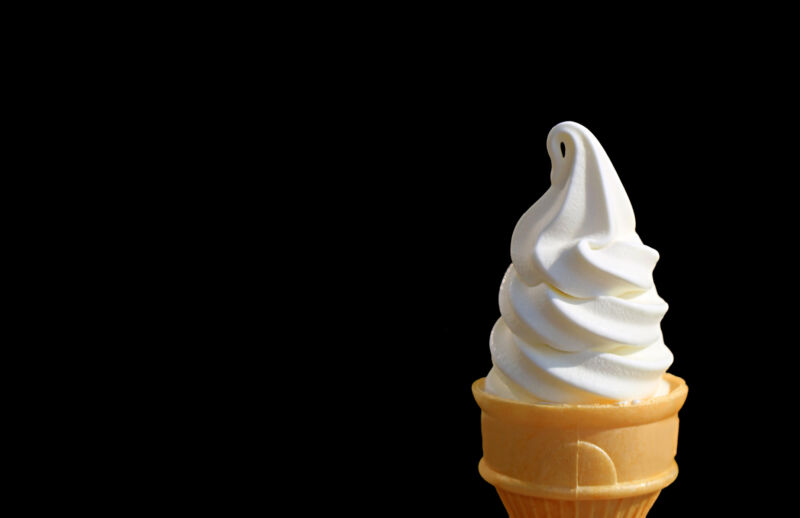US government agencies demand fixable ice cream machines
I scream, you scream, we all scream for 1201(c)3 exemptions —
McFlurries are a notable part of petition for commercial and industrial repairs.

Enlarge / Taylor’s C709 Soft Serve Freezer isn’t so much mechanically complicated as it is a software and diagnostic trap for anyone without authorized access.
Many devices have been made difficult or financially nonviable to repair, whether by design or because of a lack of parts, manuals, or specialty tools. Machines that make ice cream, however, seem to have a special place in the hearts of lawmakers. Those machines are often broken and locked down for only the most profitable repairs.
The Federal Trade Commission and the antitrust division of the Department of Justice have asked the US Copyright Office (PDF) to exempt “commercial soft serve machines” from the anti-circumvention rules of Section 1201 of the Digital Millennium Copyright Act (DMCA). The governing bodies also submitted proprietary diagnostic kits, programmable logic controllers, and enterprise IT devices for DMCA exemptions.
“In each case, an exemption would give users more choices for third-party and self-repair and would likely lead to cost savings and a better return on investment in commercial and industrial equipment,” the joint comment states. Those markets would also see greater competition in the repair market, and companies would be prevented from using DMCA laws to enforce monopolies on repair, according to the comment.
The joint comment builds upon a petition filed by repair vendor and advocate iFixit and interest group Public Knowledge, which advocated for broad reforms while keeping a relatable, ingestible example at its center. McDonald’s soft serve ice cream machines, which are famously frequently broken, are supplied by industrial vendor Taylor. Taylor’s C709 Soft Serve Freezer requires lengthy, finicky warm-up and cleaning cycles, produces obtuse error codes, and, perhaps not coincidentally, costs $350 per 15 minutes of service for a Taylor technician to fix. iFixit tore down such a machine, confirming the lengthy process between plugging in and soft serving.
After one company built a Raspberry Pi-powered device, the Kytch, that could provide better diagnostics and insights, Taylor moved to ban franchisees from installing the device, then offered up its own competing product. Kytch has sued Taylor for $900 million in a case that is still pending.
Beyond ice cream, the petitions to the Copyright Office would provide more broad exemptions for industrial and commercial repairs that require some kind of workaround, decryption, or other software tinkering. Going past technological protection measures (TPMs) was made illegal by the 1998 DMCA, which was put in place largely because of the concerns of media firms facing what they considered rampant piracy.
Every three years, the Copyright Office allows for petitions to exempt certain exceptions to DMCA violations (and renew prior exemptions). Repair advocates have won exemptions for farm equipment repair, video game consoles, cars, and certain medical gear. The exemption is often granted for device fixing if a repair person can work past its locks, but not for the distribution of tools that would make such a repair far easier. The esoteric nature of such “release valve” offerings has led groups like the EFF to push for the DMCA’s abolishment.
DMCA exemptions occur on a parallel track to state right-to-repair bills and broader federal action. President Biden issued an executive order that included a push for repair reforms. The FTC has issued studies that call out unnecessary repair restrictions and has taken action against firms like Harley-Davidson, Westinghouse, and grill maker Weber for tying warranties to an authorized repair service.
Disclosure: Kevin Purdy previously worked for iFixit. He has no financial ties to the company.
US government agencies demand fixable ice cream machines Read More »



